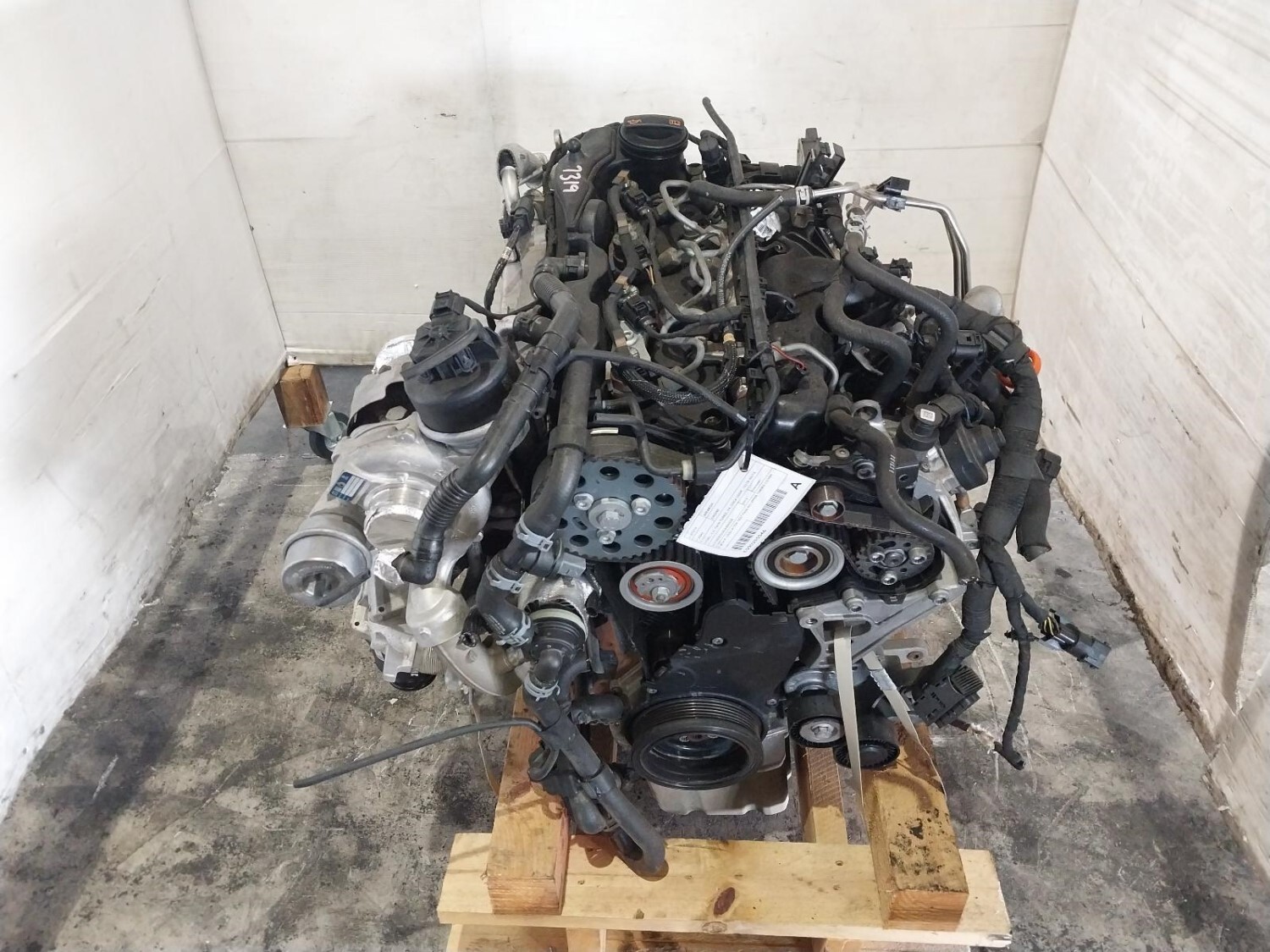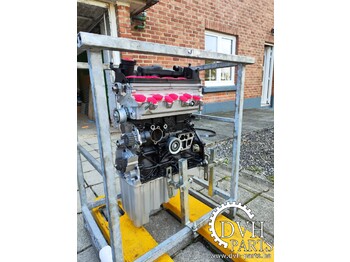High Quality Amarok Engine for Sale-- Have A Look At Our Exclusive Range and Offers
High Quality Amarok Engine for Sale-- Have A Look At Our Exclusive Range and Offers
Blog Article
Browsing the Refine of Engine Option: Secret Factors to Take Into Consideration
The procedure of engine selection is a multifaceted undertaking that requires careful analysis of numerous crucial variables to guarantee placement with functional objectives. Performance demands, gas performance, and financial restraints are just the start; considerations around environmental impact and maintenance assistance play a critical role in the decision-making framework. Understanding how each of these aspects interacts can dramatically influence the efficiency and longevity of your investment. Nonetheless, the details of each variable might not be immediately noticeable, motivating further assessment of exactly how to tactically browse this complex landscape.
Performance Requirements
When choosing an engine, it is vital to develop clear efficiency requirements that line up with the intended application. Performance requirements include a variety of variables, including power result, torque qualities, and responsiveness, which have to be tailored to the details demands of the lorry or machinery concerned.
Power output, typically measured in horsepower, identifies the engine's capability to propel an automobile or execute a task successfully. Torque, on the other hand, is important for applications needing solid first acceleration or heavy lifting abilities. An understanding of the functional setting is additionally important; for instance, engines created for off-road applications may require different performance characteristics contrasted to those planned for highway use.
Additionally, take into consideration the operational lots and obligation cycle, as these aspects affect the engine's longevity and reliability. In high-load situations, a durable engine layout may be necessary to stop early wear or failure. Additionally, efficiency requirements should also incorporate considerations for emission requirements and regulative compliance, especially in regions with strict ecological guidelines. By specifying these performance specifications early in the choice procedure, stakeholders can make educated decisions that improve general operational efficiency and effectiveness.
Gas Efficiency Factors To Consider
While efficiency needs are vital, fuel performance is similarly vital in the engine choice process, as it directly impacts operating expenses and ecological sustainability. Fuel-efficient engines eat less fuel per device of job done, which not just lowers general expense but likewise decreases greenhouse gas emissions. As companies increasingly prioritize sustainability, picking an engine that maximizes gas efficiency can improve business duty and conformity with ecological regulations.
When assessing fuel effectiveness, it is necessary to consider the engine's design and innovation - amarok engine for sale. Developments such as turbocharging, direct fuel shot, and hybrid systems can considerably enhance fuel economic climate. Furthermore, understanding the operating conditions and obligation cycles of the engine application is important; engines might perform differently under differing speeds and tons
Furthermore, makers commonly offer gas intake information that can be utilized to contrast various engine choices. In summary, gas efficiency is a multi-faceted consideration that calls for extensive analysis throughout the engine selection process.
Budget Plan and Cost Evaluation
Spending plan and expense analysis serves as a crucial component in the engine option process, affecting both temporary investments and long-term operational expenses. When evaluating possible engines, it is necessary to think about not only the first purchase cost but additionally the overall cost of possession, which includes installment, maintenance, gas intake, and possible downtime.
An extensive analysis needs to begin with the ahead of time prices connected with the engine, including essential alterations or ancillary devices. Concentrating solely on preliminary expenses might lead to misguided decisions. Reviewing operating prices over the engine's life expectancy is similarly vital, as more pricey engines could offer superior fuel performance or reduced maintenance requirements, inevitably leading to cost financial savings.

Ecological Impact Variables
Understanding environmental influence factors is crucial in the engine option procedure, as sustainability factors to consider have become progressively crucial for both regulative conformity and corporate responsibility. Organizations must examine the emissions produced by different engine types, including carbon dioxide, nitrogen oxides, particle matter, and unburned hydrocarbons. These emissions contribute dramatically to air pollution site here and environment change, redirected here necessitating a mindful analysis of the engine's environmental footprint.
Furthermore, fuel type plays a vital function in environmental influence. Engines powered by sustainable power sources, such as biofuels or hydrogen, tend to have a reduced ecological impact contrasted to typical fossil gas. Furthermore, the lifecycle assessment of the engine, from manufacturing with operation to disposal, should be thought about to understand the full extent of its environmental effects.

Upkeep and Support Choices
When selecting an engine, the schedule of upkeep and assistance choices is an essential factor to consider that can substantially affect functional effectiveness and long life. Comprehensive maintenance intends ensure that the engine runs at peak performance and lessens unexpected downtimes. It is vital to examine the manufacturer's assistance network, including the accessibility of certified service technicians and solution centers.
Analyzing the availability of extra parts is likewise essential. A trusted supply chain for elements can reduce preparations for fixings and maintenance, consequently boosting overall efficiency. In addition, consider the simplicity of obtaining technical documentation and training resources, which are essential for guaranteeing that workers are well-equipped to deal with routine and emergency circumstances.
An additional vital factor is the warranty and service contracts provided by the maker. These arrangements can provide assurance and monetary defense versus unanticipated concerns. Eventually, a positive technique to upkeep and assistance not just expands the life of the engine yet additionally adds to the total success of the procedure. Cautious factor to consider of these aspects will certainly lead to educated choices that straighten with functional goals and budgets.
Conclusion
To conclude, the process of engine option requires a you can try this out thorough analysis of numerous important variables, consisting of efficiency demands, fuel performance, budget plan restrictions, environmental influence, and maintenance support. By diligently examining these aspects, educated decisions can be made that straighten with functional objectives and sustainability objectives. Eventually, a tactical method to engine selection will certainly guarantee optimal efficiency and durability while dealing with monetary and ecological factors to consider successfully.
While performance requirements are critical, fuel performance is just as important in the engine option process, as it straight impacts operating expenses and ecological sustainability. As companies progressively prioritize sustainability, choosing an engine that maximizes fuel performance can enhance company responsibility and conformity with environmental guidelines.
In addition, understanding the operating problems and obligation cycles of the engine application is important; engines might do in a different way under varying rates and tons. (amarok engine for sale)
Reviewing operating costs over the engine's lifespan is equally vital, as a lot more pricey engines could offer premium fuel effectiveness or minimized upkeep demands, eventually leading to cost savings.
In final thought, the procedure of engine option necessitates a detailed evaluation of various vital aspects, consisting of efficiency demands, fuel effectiveness, budget plan restrictions, ecological effect, and maintenance support. - amarok engine for sale
Report this page